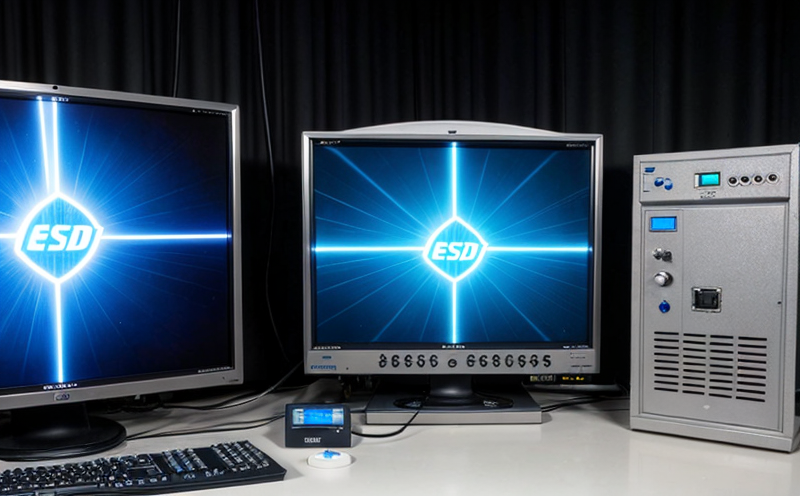ISO 7637 Road Vehicle Electrical Disturbance Testing
The ISO 7637 series of standards is designed to ensure that road vehicles are resilient against electromagnetic interference (EMI) and electrical disturbances. This service focuses on the specific requirements outlined in ISO 7637-1, which includes tests for transient voltage surges, over-voltage conditions, and other electrical disturbances that can occur during vehicle operation.
These tests are crucial because they help manufacturers ensure that their products function reliably under a wide range of environmental conditions. For semiconductor and microchip testing in the automotive sector, ISO 7637-1 is particularly important as it addresses the robustness of electronic components against electrical disturbances such as lightning strikes, switching transients, and other high-energy pulses.
The tests are designed to simulate real-world scenarios where a vehicle might experience sudden changes in voltage or current. By subjecting the components to these conditions, we can identify any weaknesses in design or manufacturing that could lead to failure under field conditions. This not only enhances product quality but also contributes to improving overall safety and reliability of automotive electronics.
In our testing facility, we use state-of-the-art equipment capable of generating precise transient waveforms that mimic real-world disturbances. The setup includes a variety of test fixtures designed specifically for different types of semiconductors and microchips used in vehicles. Our team of experts ensures accurate calibration and consistent application of the tests to guarantee reliable results.
Once testing is complete, our comprehensive reports provide detailed insights into how each component performed under various test conditions. These reports are invaluable for R&D teams as they help guide future improvements and optimizations. Compliance officers benefit from these tests by ensuring adherence to international standards and regulations, while procurement departments can leverage this information when selecting suppliers.
| Standard Reference | Description |
|---|---|
| ISO 7637-1:2004 | Electrical disturbances on supply lines to road vehicles - Part 1: Transients of electrical nature |
| ISO 7637-2:2005 | Electrical disturbances on supply lines to road vehicles - Part 2: Transients of electromagnetic nature |
| IEC 61508 | Detection, analysis, and mitigation of electrical disturbances in automotive electronics |
The rigorous testing process helps identify potential issues early on in the development cycle. This proactive approach ensures that any necessary adjustments can be made before mass production begins. It also provides peace of mind for manufacturers and buyers alike, knowing that their products meet stringent global standards.
Why It Matters
The reliability of automotive electronics is paramount in today's fast-paced world where vehicles are becoming increasingly reliant on advanced technology. Ensuring robustness against electrical disturbances is critical to maintaining this trust and ensuring safety.
Electrical disturbances can occur due to various factors, including lightning strikes, switching transients caused by relays or contactors, and other high-energy pulses that may affect the operation of vehicle systems. By simulating these conditions through ISO 7637-1 testing, we help manufacturers develop components that are not only more resilient but also safer for use in vehicles.
The automotive industry is constantly evolving with new technologies being introduced to enhance performance and efficiency. However, this progress must be balanced against maintaining high standards of quality and safety. ISO 7637-1 testing plays a vital role in achieving this balance by providing a standardized method for evaluating the robustness of vehicle electronics.
For R&D engineers involved in designing these systems, knowing that their creations have passed rigorous tests like those specified in ISO 7637-1 can be extremely reassuring. It allows them to focus on innovation without having to worry about basic reliability issues. Compliance officers also benefit greatly from this service as it helps ensure that all products comply with relevant international standards.
Finally, for procurement departments responsible for sourcing components and materials, being able to rely on third-party testing labs like ours can simplify their job significantly. Knowing that the suppliers they choose have undergone thorough quality checks gives them confidence in making informed decisions about whom to work with.





